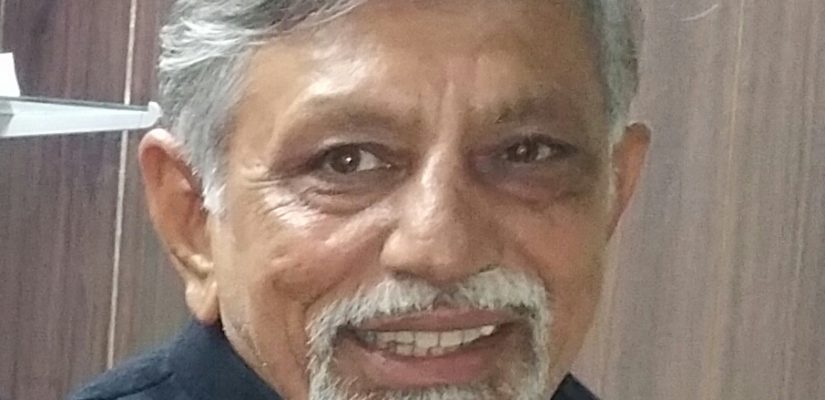
Defending the soldiers is the commanding officer’s duty (English version) Amar Ujala 12 Nov 18
https://www.amarujala.com/columns/opinion/conflicts-between-army-and-police-is-not-good?src=top-lead
Defending the soldiers is the commanding officer’s duty (English version) Amar Ujala 12 Nov 18
The recent incident in Bomdilla in Arunachal Pradesh, where the Commanding Officer (CO) of the Arunachal Scouts was witnessed warning police personnel of mistreating Jawans has been the focus of discussion across social media. The incident led to the President of Indian Civil Administrative Services (ICAS) writing to the defence secretary seeking his intervention in the case and demanding action against the soldiers.
The incident involved two jawans of the unit who had proceeded to attend the Buddha Mahotsav on 02 Nov. They were picked up by the police and severely beaten up, despite stating that they were army personnel. There are some variations in reports. Police claimed they were drunk and misbehaving, while the army claims otherwise. That fact remains that they were injured to the extent that they had to be admitted for treatment. Photographs and medical reports have been circulating on social media.
Post the incident the army sent an officer with some soldiers who picked up the injured jawans and took them to the hospital. It was the manhandling of the jawans which angered the CO and he personally went to the police station and met the SHO. A video doing the rounds on social media shows the CO warning police not to manhandle soldiers again.
Subsequently he met the SP police to diffuse the situation. Reports claim that army personnel accompanying the CO damaged police property and vehicles as also manhandled police personnel. What has been missed is that while the CO and the SP were in conversation, police personnel instigated soldiers by using unparliamentary language compelling them to react. Both the CO and SP rushed out to diffuse the situation. The letter by the ICAS president also claims that the DM, Sonali Swarup, was insulted when she asked the soldiers to disperse.
The police have no right to physically assault anyone, even if he is not a soldier. If the assault was such that the individuals had to be admitted, then legally the police should be hauled up. Secondly, as per law, military personnel must be handed over to their own authorities. Locking them was also illegal. Thirdly, if the police had committed an error which was subsequently pointed out by the army, then the lapse should have been accepted, which was not.
In the army, the CO is responsible for the wellbeing of his men. If he ignores this responsibility, then the fabric of the unit would break. The men are willing to sacrifice their lives in operations for their flag and comrades, most important of whom is the CO. He therefore cannot remain silent if his men have been mistreated.
In a mature manner he personally went to the police station to meet the SHO, a rank way below his. The reason was to convey the message that this time he would not act, the next time may be different. After all, the police and the army must live in the area together.
Army men attacking police personnel was also wrong. The CO should have warned his men in advance to avoid being provoked, as they were already angered since their colleagues had been manhandled. It is possible he may not have anticipated the possible provocation. It was subsequently resolved. However, the matter was not so grave as to bring forth a national reaction from the ICAS. It was supported in tweets by other central government associations.
The letter issued by the ICAS president and supported by others is an indicator of the increasing divide between the bureaucracy and the armed forces. The letter was one-sided, aimed at defending the DC and her staff, while shifting the complete blame onto the army. There was also no mention of the highhandedness of the local police.
The army on the other hand, maintained dignity and silence as it remains a disciplined organization. In all fairness the actions taken by the CO was reflective of the bonding which he has with his men. Social media has indicated support to the army, rather than the IAS lobby.
A major fact which has been ignored all through is that the army has been deployed in region for over 70 years and there has been no ugly incident. This is because the army is a disciplined organization which has maintained its distance. It is more respected locally than the police or state administration because of its support to the local public. It acted only when it was pushed, its soldiers assaulted brutally and insulted.
Most important is the action and reaction by the MoD. The defence minister met those involved along with the MoS home. If she acts against the CO, who stood for his men, then it would be a cardinal error, as it would indicate an anti-army bias. The army chief is committed by the Chetwoode motto and must stand by his CO, who acted in the best interests of his command. If the state acts against the police or the DM, it would anger the ICAS. In this catch 22 situation the only option is to order an investigation.
Investigations either jointly or singly would seek to prove the other wrong. Nothing would flow for years. Ideally, the situation should return to normal. Both the state and the army need one another. Neither can work in isolation. A discussion at the senior level followed by one at the appropriate level should restore the situation to normal. The faster, the better.